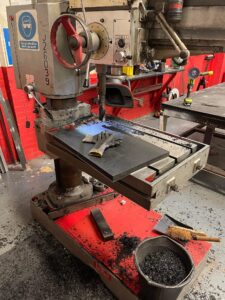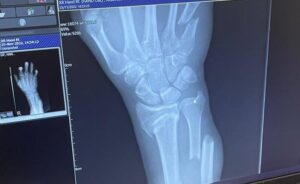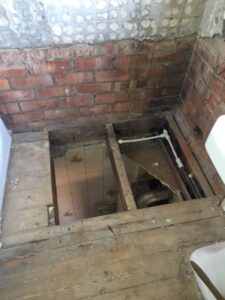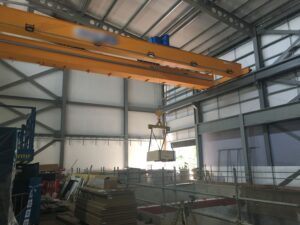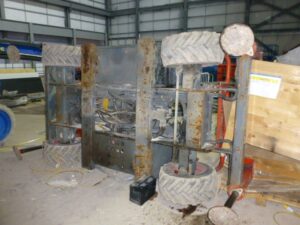Chemicals firm fined following explosion
A solvents manufacturer has been fined following an explosion at its factory in the Scottish Borders.
The blast at Rathburn Chemicals in Walkerburn on 10 January 2020 resulted in a laboratory, which was part of the factory, being demolished.
It was likely caused by excessive pentane vapour, generated by the company’s distillation process, overheating and being ignited by the site’s extraction system.
No one was injured by the explosion.

A Health and Safety Executive (HSE) investigation found Rathburn Chemicals had an inadequate system in place which failed to control the amount of steam and heat being generated during its distillation process. The company also failed to adequately detect any signs of overheating which could lead to flammable vapour being ignited.
HSE guidance can be found at: The Dangerous Substances and Explosive Atmospheres Regulations 2002 – Fire and explosion (hse.gov.uk)

Rathburn Chemicals (Manufacturing) Limited, of Caberston Road, Walkerburn, Peeblesshire, pleaded guilty to breaching Section 2(1) and Section 33(1)(a) of the Health and Safety at Work etc. Act 1974. The company was fined £40,000 and ordered to pay a victim surcharge of £3,000 at Lothian and Borders Sheriff Court on 20 September 2024.
HSE inspector Isabelle Martin said: “This was a serious incident and it is fortunate that no one was injured by the blast. The explosion could have been avoided had Rathburn Chemicals simply carried out the correct control measures and safe working practices.
“This case also highlights the risks from distilling flammable substances, the need for reliable control measures and adequate training of employees. Companies looking for further advice on this issue can find readily available guidance on the HSE website.”
Notes to editors:
- The Health and Safety Executive (HSE) is Britain’s national regulator for workplace health and safety. We are dedicated to protecting people and places, and helping everyone lead safer and healthier lives.
- More information about the legislation referred to in this case is available.
- Further details on the latest HSE news releases is available.
